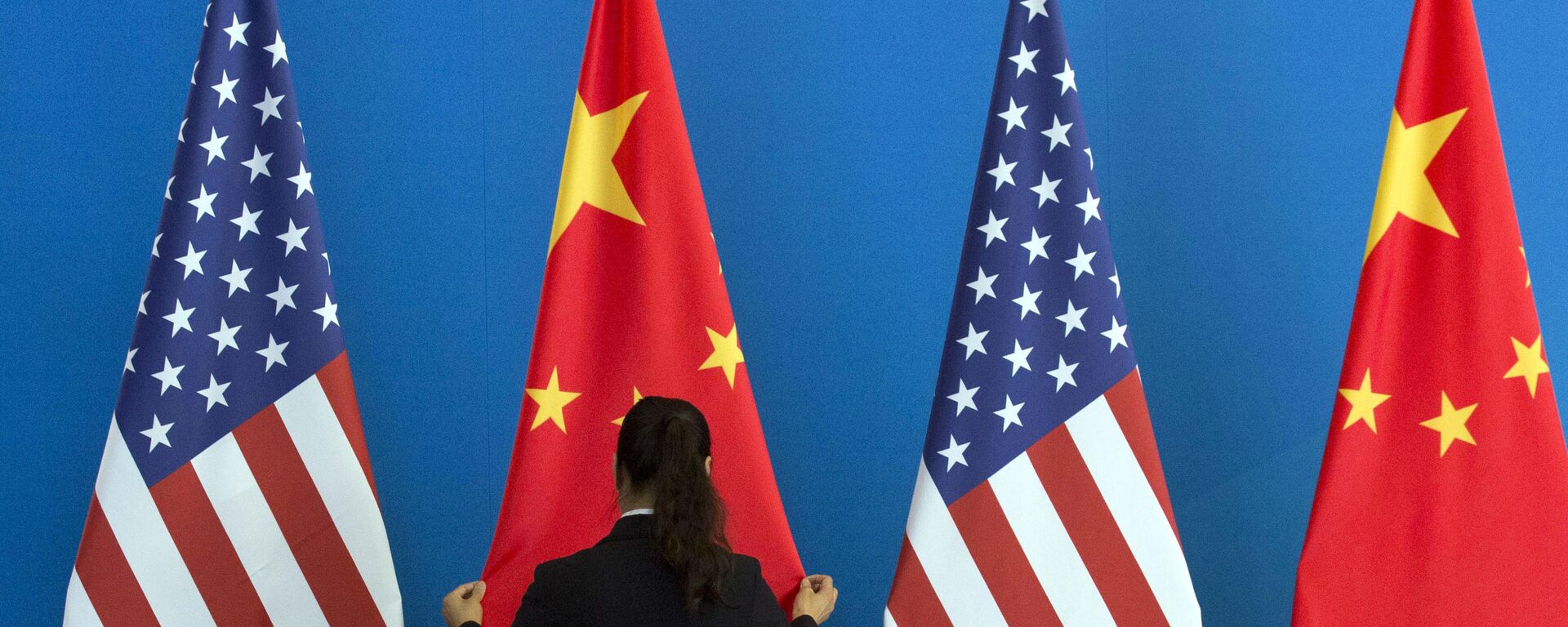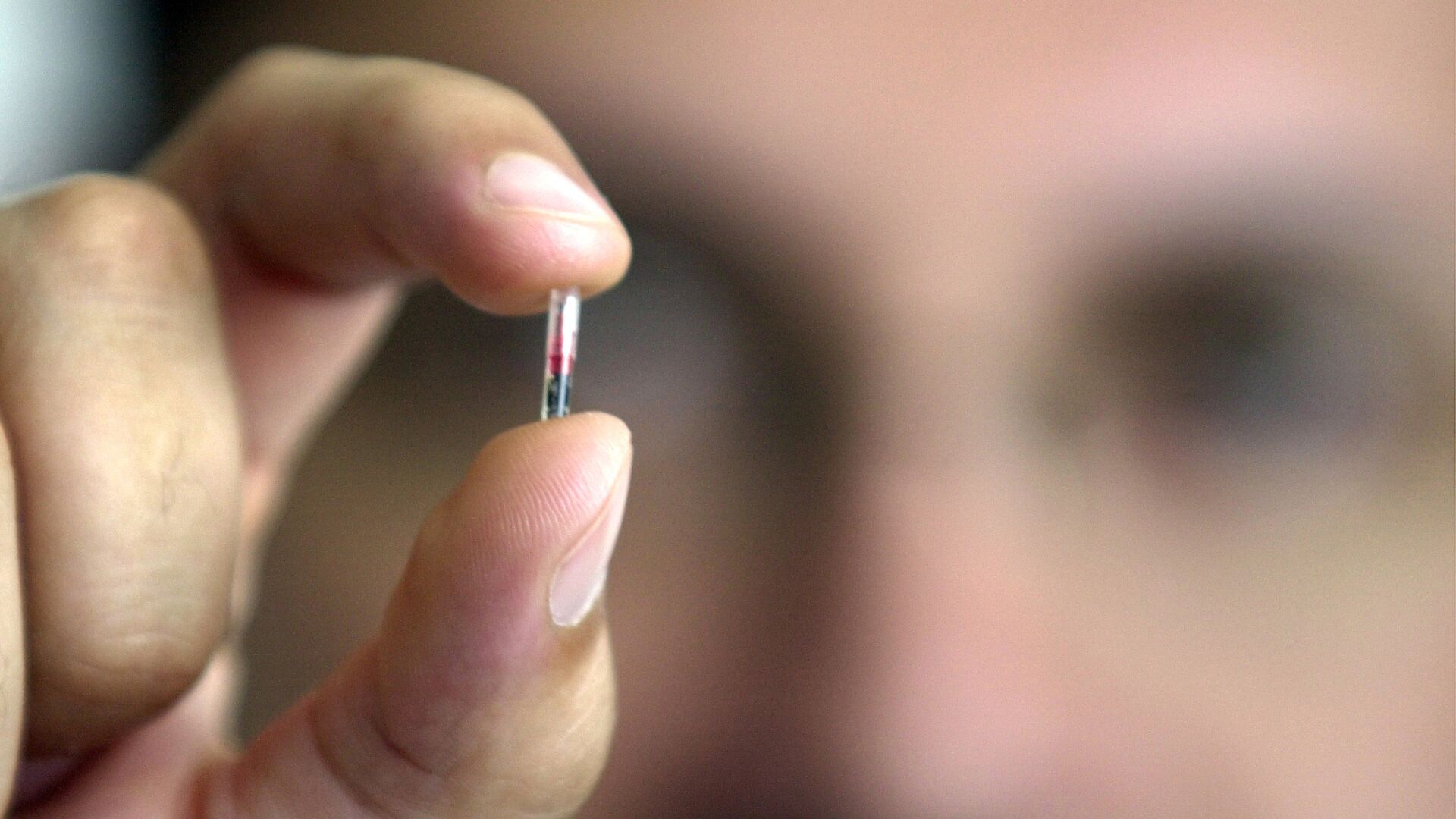https://sputnikglobe.com/20230109/penny-wise-pound-foolish-us-embargo-driving-china-to-pioneer-own-semiconductor-industry-1106173244.html
‘Penny-Wise, Pound-Foolish’: US ‘Embargo’ Driving China to Pioneer Own Semiconductor Industry
‘Penny-Wise, Pound-Foolish’: US ‘Embargo’ Driving China to Pioneer Own Semiconductor Industry
Sputnik International
After Washington declared itself to be in “great power competition” with Russia and China in 2018, it launched a massive effort to “decouple” the US and... 09.01.2023, Sputnik International
2023-01-09T17:27+0000
2023-01-09T17:27+0000
2023-01-09T17:34+0000
world
microchip
semiconductors
china
huawei
us sanctions
https://cdn1.img.sputnikglobe.com/img/106417/88/1064178879_0:241:2701:1760_1920x0_80_0_0_e9ba19c0ad45ff779b202da154e63efe.jpg
US efforts to strangle Chinese industries dependent on advanced semiconductor computer chips are having an effect for the moment, but they are only encouraging Beijing to push ahead in developing its own domestic chipmaking capabilities, experts have said.Until recently, China was the world’s largest buyer of semiconductor chips, consuming a majority of South Korea’s annual chip exports and partnering with Taiwanese firms to obtain advanced chips. However, in October, the US banned the selling of certain advanced chips to Chinese firms, sending the industry into chaos as numerous Taiwanese, Japanese, and South Korean firms with foundries or lucrative deals in China rushed to obtain last-minute sanctions waivers.Another expert said that Beijing was “really concerned about this chip embargo,” warning that “their long-run response is that they will nurture their own chip industry.”Reports have spread in China and on social media in recent days, fueled by alleged insider reports, that Huawei was close to being able to mass-produce 12-nanometer and 14-nanometer chips thanks to “three years of continuous effort.” Until now, Chinese firms have had to buy them from partners like Taiwan Semiconductor Manufacturing Company (TSMC), which produces chips as small as 4 nanometers.That is a massive gain for China’s chip industry, which can produce larger microchips at scale but has struggled to match the Taiwanese and South Korean chip industries, which can produce smaller chips than any Chinese firm.Beijing has pumped billions into supporting the industry for several years, most recently announcing a $143 billion investment program that would include helping domestic chip foundries shoulder the burden of buying expensive equipment, as well as tax breaks for firms investing in the assembly, packaging, and R&D of chips.
https://sputnikglobe.com/20221216/us-export-restrictions-may-force-china-to-indigenize-microchip-value-chain---expert-1105506199.html
china
Sputnik International
feedback@sputniknews.com
+74956456601
MIA „Rossiya Segodnya“
2023
News
en_EN
Sputnik International
feedback@sputniknews.com
+74956456601
MIA „Rossiya Segodnya“
Sputnik International
feedback@sputniknews.com
+74956456601
MIA „Rossiya Segodnya“
microchip, semiconductors, china, huawei, us sanctions
microchip, semiconductors, china, huawei, us sanctions
‘Penny-Wise, Pound-Foolish’: US ‘Embargo’ Driving China to Pioneer Own Semiconductor Industry
17:27 GMT 09.01.2023 (Updated: 17:34 GMT 09.01.2023) After Washington declared itself to be in “great power competition” with Russia and China in 2018, it launched a massive effort to “decouple” the US and Chinese economies. Americans were blocked from buying from and doing business with numerous Chinese tech companies in an effort to cut off China’s access to western technology.
US efforts to strangle Chinese industries dependent on advanced semiconductor computer chips are having an effect for the moment, but they are only encouraging Beijing to push ahead in developing its own domestic chipmaking capabilities, experts have said.
Until recently, China was the world’s largest buyer of semiconductor chips, consuming a majority of South Korea’s annual chip exports and partnering with Taiwanese firms to obtain advanced chips.
However, in October, the US
banned the selling of certain advanced chips to Chinese firms, sending the industry into chaos as numerous Taiwanese, Japanese, and South Korean firms with foundries or lucrative deals in China rushed to obtain last-minute sanctions waivers.
“They can make life difficult for three or four years,” a venture investor in China said anonymously in US media. “But it’s penny-wise and pound-foolish. They will lose the market in China.”
Another expert said that Beijing was “really concerned about this chip embargo,” warning that “their long-run response is that they will nurture their own chip industry.”
Huawei, a leading global techmaker headquartered in Shenzhen, has been cultivating its own efforts to find new sources for the advanced microchips that helped it become the world’s largest maker of smartphones, but also made it one of the first targets of US sanctions.

16 December 2022, 03:33 GMT
Reports have spread in China and on social media in recent days, fueled by alleged insider reports, that Huawei was close to being able to mass-produce 12-nanometer and 14-nanometer chips thanks to “three years of continuous effort.” Until now, Chinese firms have had to buy them from partners like Taiwan Semiconductor Manufacturing Company (TSMC), which produces chips as small as 4 nanometers.
Late last year, the company filed a patent application for extreme ultraviolet (EUV) lithography, which is used to make the world’s most advanced computer chips, according to Chinese media reports. It had previously purchased the chips from the Dutch firm ASML, the world’s sole supplier of EUV chips.
That is a massive gain for China’s chip industry, which can produce larger microchips at scale but has struggled to match the Taiwanese and South Korean chip industries, which can produce smaller chips than any Chinese firm.
Beijing has pumped billions into supporting the industry for several years, most recently announcing a $143 billion investment program that would include helping domestic chip foundries shoulder the burden of buying expensive equipment, as well as tax breaks for firms investing in the assembly, packaging, and R&D of chips.



